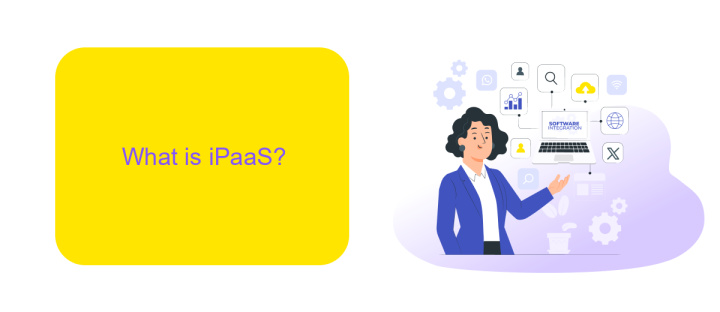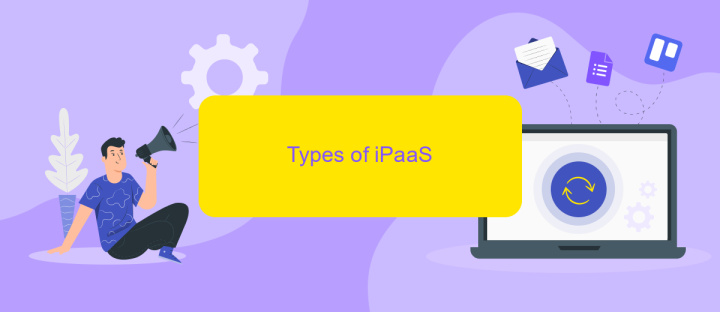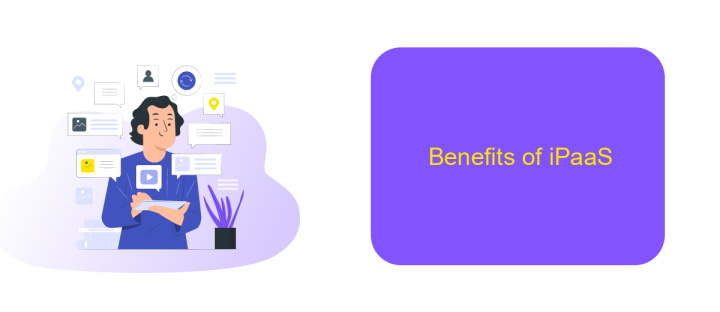iPaaS Systems
Integration Platform as a Service (iPaaS) systems have revolutionized the way businesses connect disparate applications and data sources. By providing a cloud-based solution for seamless integration, iPaaS enables organizations to streamline workflows, enhance data accuracy, and improve operational efficiency. This article explores the key features, benefits, and considerations when implementing iPaaS solutions in today's dynamic business environment.
Introduction
Integration Platform as a Service (iPaaS) systems have revolutionized the way businesses handle their integration needs. These platforms provide a seamless way to connect various applications and data sources, ensuring smooth data flow and operational efficiency. With the increasing complexity of IT environments, iPaaS solutions have become essential for modern enterprises.
- Streamlined integration processes
- Enhanced data management
- Scalability and flexibility
- Cost-effective solutions
- Real-time data synchronization
One notable example of an iPaaS solution is ApiX-Drive, which offers a user-friendly interface for setting up integrations without the need for extensive coding knowledge. By providing pre-built connectors and automated workflows, ApiX-Drive simplifies the integration process, allowing businesses to focus on their core activities. As organizations continue to adopt digital transformation strategies, the role of iPaaS systems like ApiX-Drive will only become more critical.
What is iPaaS?

Integration Platform as a Service (iPaaS) is a cloud-based solution designed to facilitate the seamless connection and integration of various applications, data, and systems across different environments. iPaaS provides a unified platform that simplifies the integration process, enabling businesses to automate workflows, streamline operations, and improve data accuracy. By leveraging pre-built connectors and integration tools, organizations can quickly and efficiently connect disparate systems without the need for extensive coding or IT intervention.
One notable example of an iPaaS solution is ApiX-Drive, which offers a user-friendly interface and robust features to help businesses integrate their applications and services. ApiX-Drive allows users to create custom workflows, synchronize data between platforms, and automate repetitive tasks, thereby enhancing productivity and operational efficiency. With its extensive library of connectors, ApiX-Drive supports a wide range of applications and services, making it an ideal choice for organizations looking to optimize their integration processes and achieve seamless connectivity across their digital ecosystem.
Types of iPaaS

Integration Platform as a Service (iPaaS) solutions come in various types, each catering to different integration needs and complexities. Understanding these types helps businesses choose the right platform for their specific requirements.
- Cloud-based iPaaS: These platforms are hosted in the cloud, offering scalability and flexibility. They are ideal for businesses looking to integrate multiple cloud applications and services.
- Hybrid iPaaS: Combining both cloud and on-premises integration capabilities, hybrid iPaaS solutions are perfect for organizations with a mix of legacy systems and modern cloud applications.
- On-premises iPaaS: These platforms are deployed within the company’s own data centers, providing greater control and security over sensitive data. They are suitable for businesses with stringent compliance requirements.
- API Management iPaaS: Focused on managing and integrating APIs, these platforms simplify the process of connecting various applications through API endpoints. Services like ApiX-Drive excel in this area, offering robust tools for seamless API integration.
Each type of iPaaS has its unique advantages, and the choice depends on factors such as data sensitivity, integration complexity, and the existing IT infrastructure. By selecting the appropriate iPaaS type, businesses can enhance their operational efficiency and achieve smoother integration processes.
Benefits of iPaaS

iPaaS (Integration Platform as a Service) offers a myriad of benefits for businesses looking to streamline their operations and enhance connectivity between various applications. By leveraging iPaaS, organizations can ensure seamless data flow and real-time communication across different systems, which is crucial for maintaining efficient workflows.
One of the key advantages of iPaaS is its ability to simplify complex integrations. Traditional methods of integrating disparate systems often involve significant time and resources. However, with iPaaS solutions like ApiX-Drive, businesses can quickly set up and manage integrations without the need for extensive coding or technical expertise.
- Enhanced data synchronization across platforms
- Reduced integration costs and time
- Scalability to accommodate growing business needs
- Improved operational efficiency and productivity
- User-friendly interfaces for easy management
Furthermore, iPaaS platforms provide robust security measures to protect sensitive data during transfer, ensuring compliance with industry standards. This not only mitigates risks but also builds trust with clients and partners. By adopting iPaaS, businesses can focus more on their core activities while enjoying the benefits of a highly integrated and responsive IT environment.
How to Choose an iPaaS
When choosing an iPaaS (Integration Platform as a Service), start by identifying your specific integration needs. Evaluate the types of applications and data sources you need to connect and ensure the iPaaS supports them. Consider the platform's scalability, ease of use, and the level of technical expertise required. Additionally, assess the platform's security features, compliance with industry standards, and the availability of customer support.
Next, explore the platform's capabilities in automating workflows and managing integrations. For instance, ApiX-Drive offers a user-friendly interface that simplifies the process of setting up integrations without requiring extensive coding knowledge. This can be particularly beneficial for businesses looking to streamline operations quickly. Evaluate the cost structure and ensure it aligns with your budget. Finally, read reviews and request a demo to see the iPaaS in action, ensuring it meets your business requirements effectively.
FAQ
What is an iPaaS system?
How does an iPaaS system work?
What are the key benefits of using an iPaaS system?
Can non-technical users set up integrations using an iPaaS system?
What types of integrations can be automated using an iPaaS system?
Apix-Drive is a universal tool that will quickly streamline any workflow, freeing you from routine and possible financial losses. Try ApiX-Drive in action and see how useful it is for you personally. In the meantime, when you are setting up connections between systems, think about where you are investing your free time, because now you will have much more of it.

